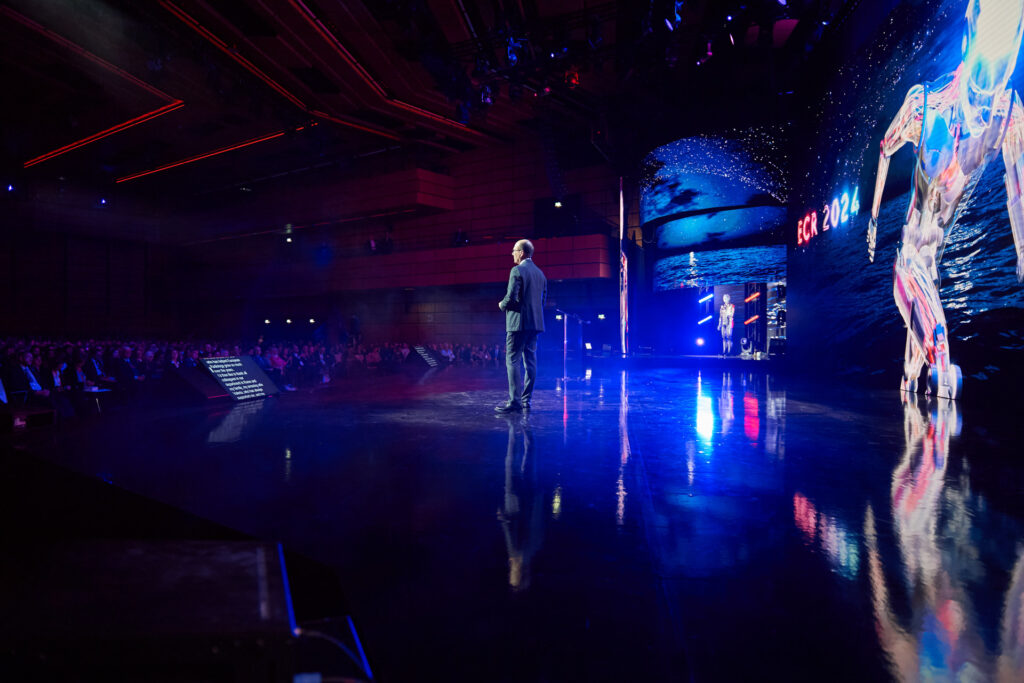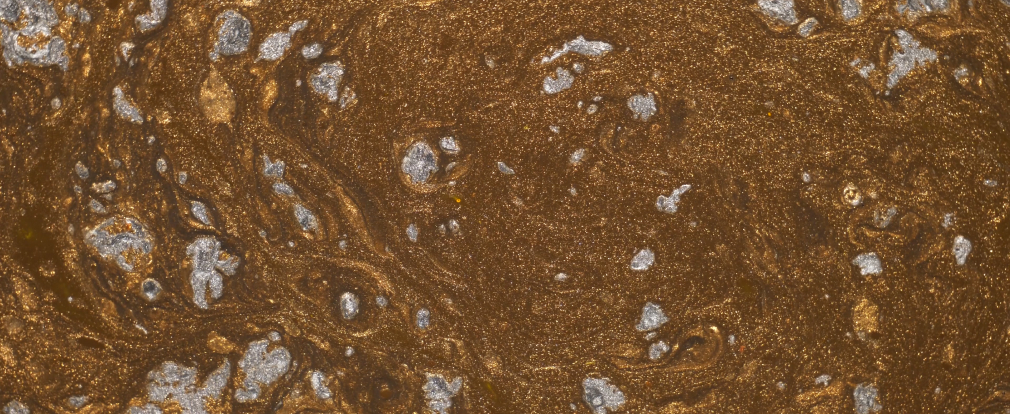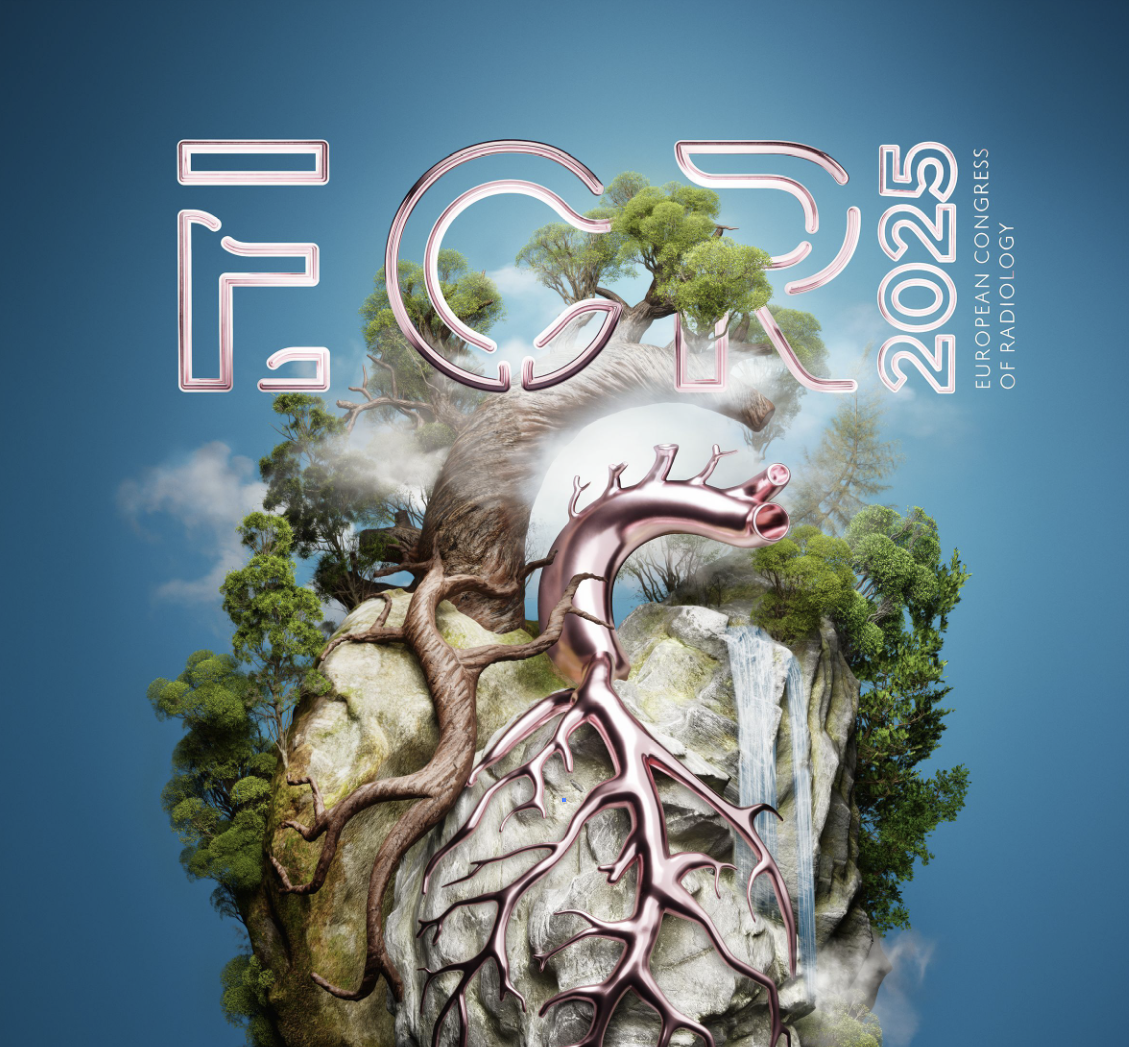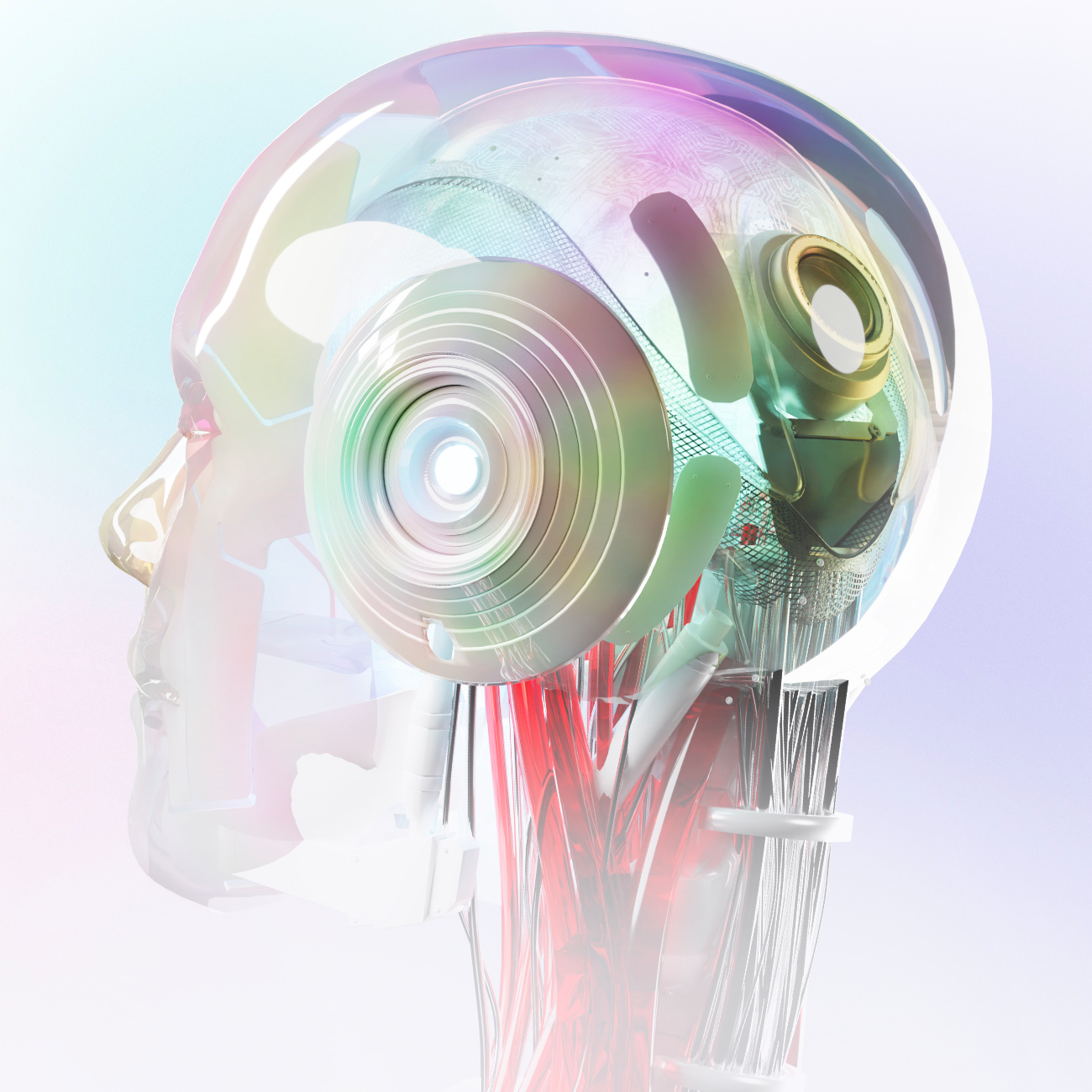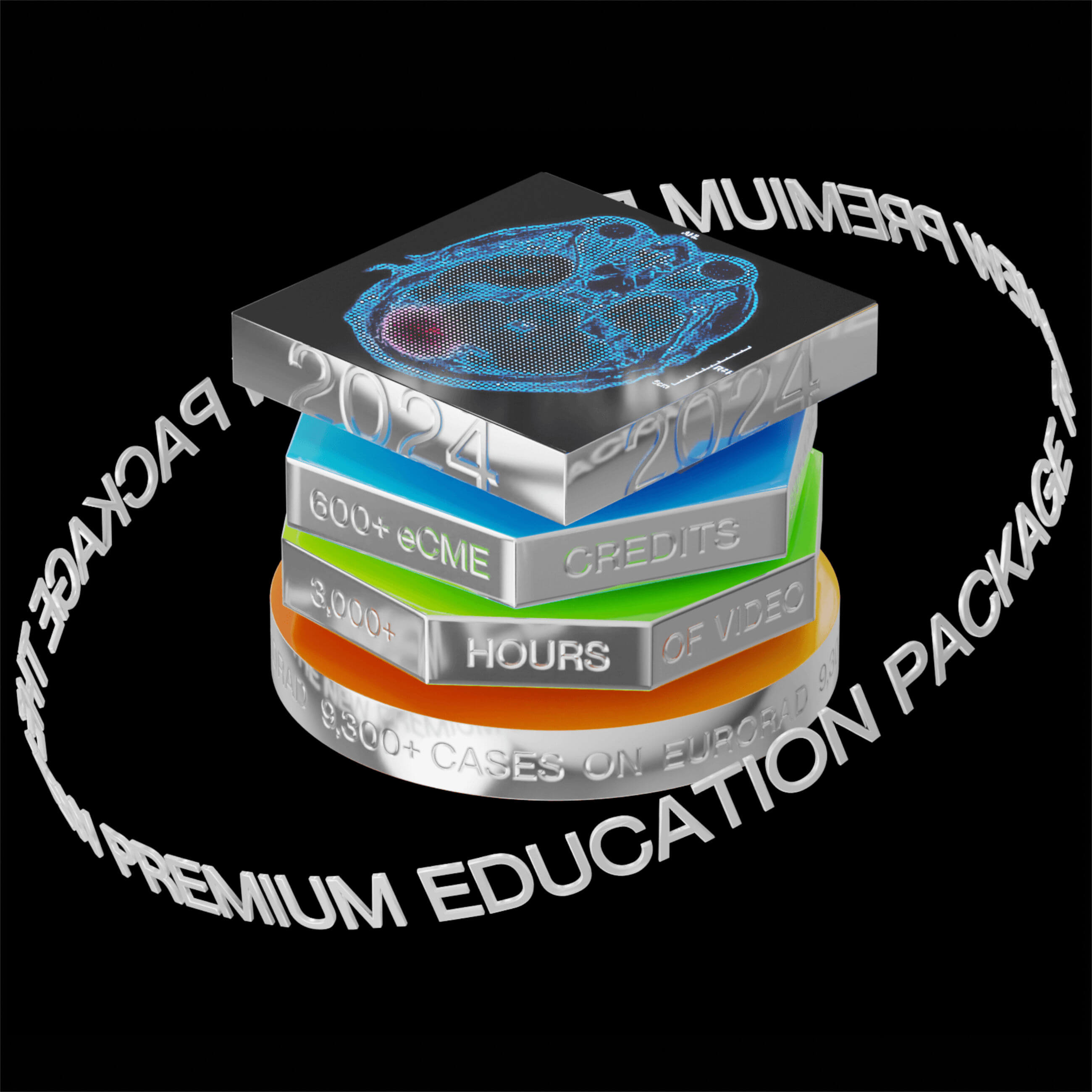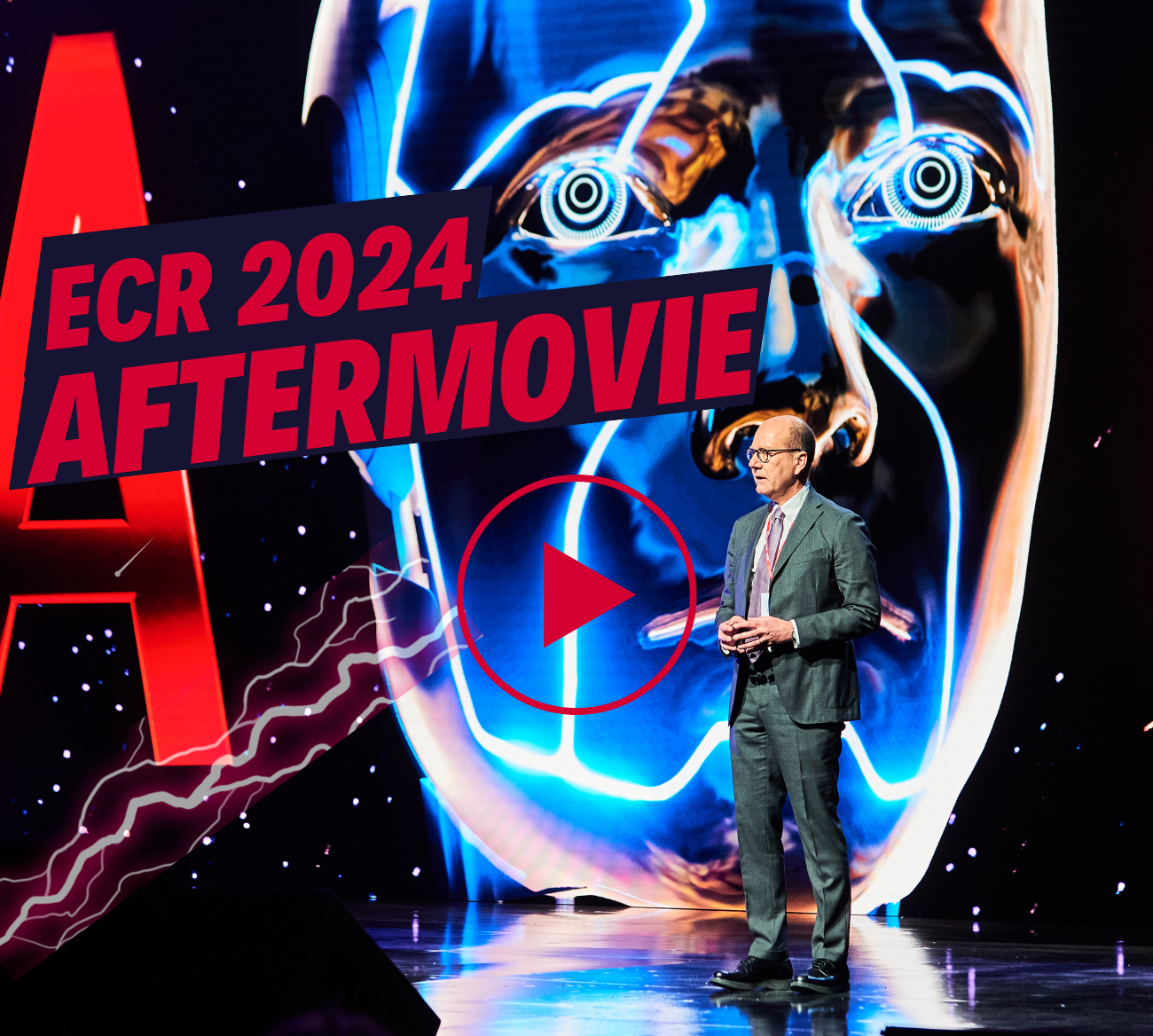Welcome
to ECR 2024
On this page you will find updates on the European Congress of Radiology, current news, latest developments and your personal roadmap as a visitor or exhibitor.
YOUR WAY TO ECR 2024
Under the links provided below, you will find detailed information about everything related to ECR 2024. This includes registration, abstract submissions, resources for faculty and presenters, as well as travel and accommodation links and tips. We are excited to welcome you to Vienna and look forward to seeing you there!
ECR 2024 Aftermovie
ECR 2025 – Planet Radiology
The ECR 2025 poster takes the congress’s theme ‘PLANET RADIOLOGY’ and brings it to life in an artistic visual that challenges us to consider the ways in which radiology affects the world we live in.
As Europe’s largest congress for radiology and imaging, ECR represents an entire ecosystem of science, innovation, and entertainment waiting to be explored. It’s a world that invites radiologists, industry partners and other imaging professionals to become pioneers, uncovering the wonders of an unknown planet – all in the heart of Vienna.
‘PLANET RADIOLOGY’ also takes the concept of planetary health and looks at it through the unique lens of medical imaging. How can radiologists adapt and improve our practices, technology and mindsets to benefit the world we live in environmentally, socially and medically?
Discover how our field is evolving to become greener and more socially responsible, and how our esteemed industry partners are pioneering innovations in radiology to shape a more sustainable future for our planet at ECR 2025.
ECR 2025 will take place from February 26 – March 2 in Vienna
Lorem Ipsum
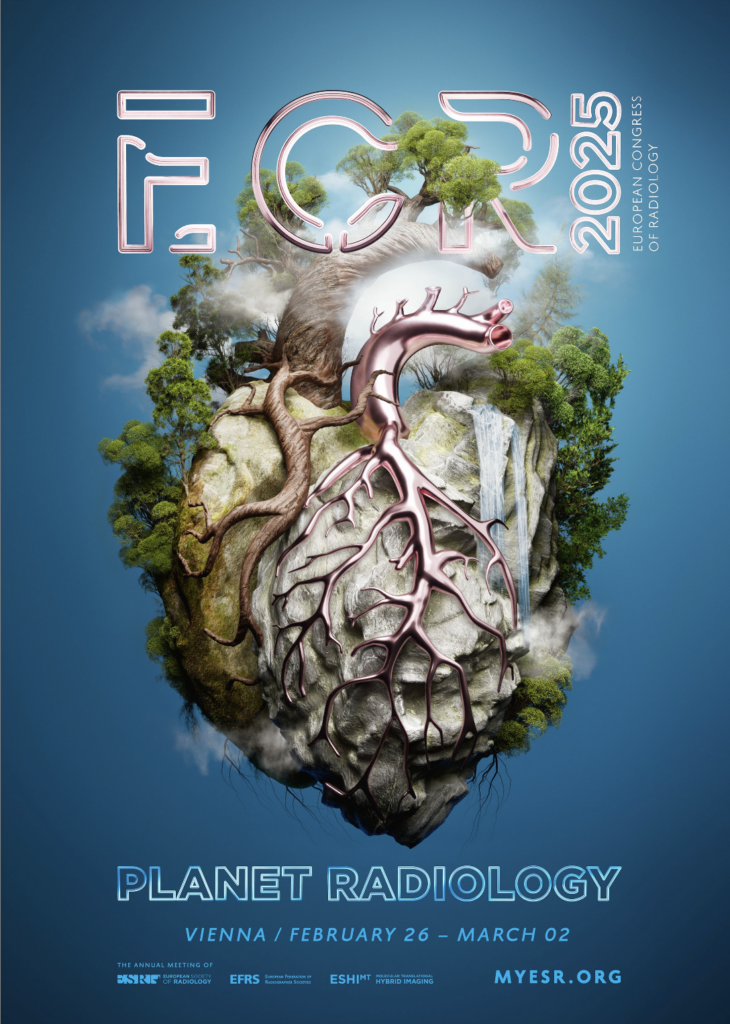
ECR 2024 Dignitaries
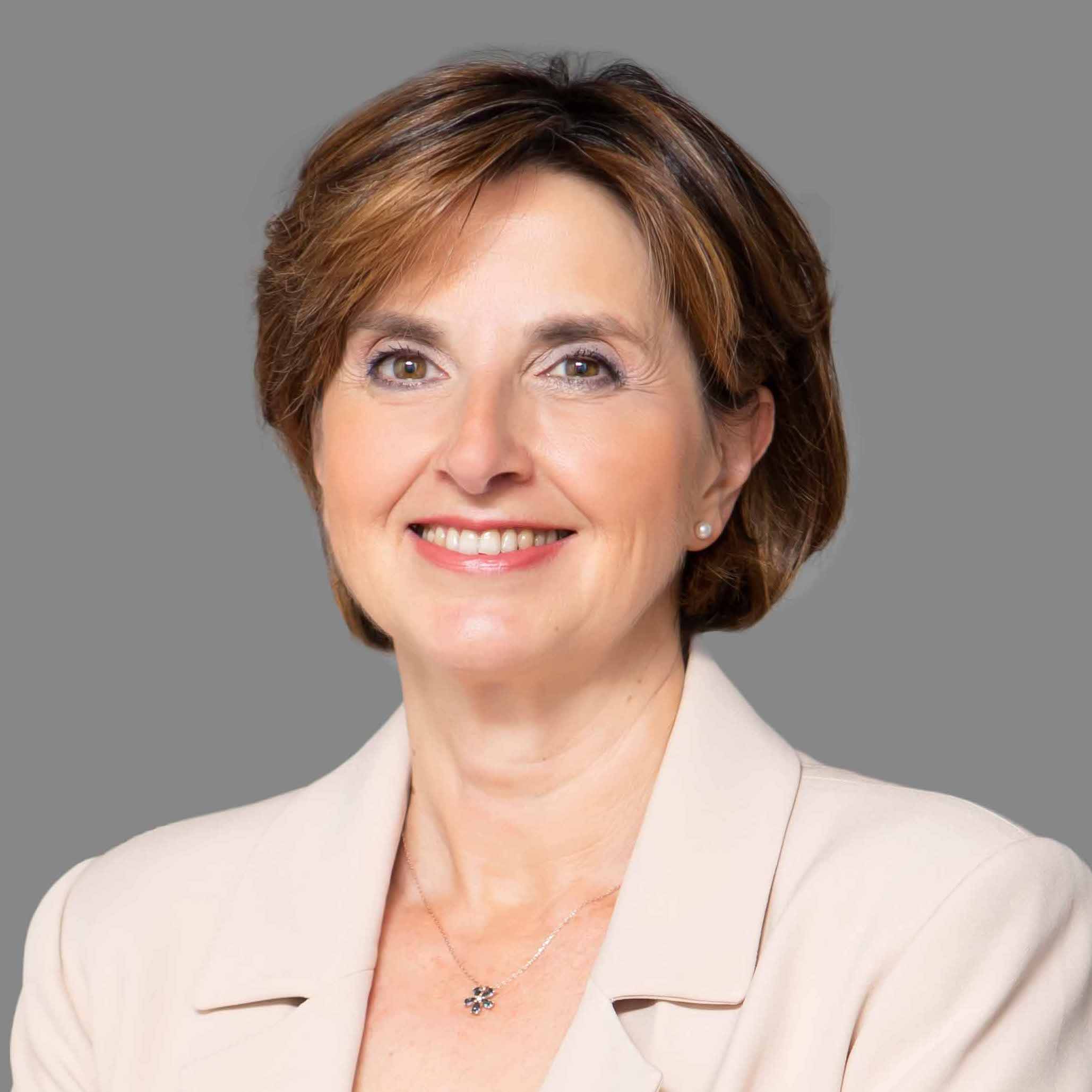
ESR Gold Medallist
Deniz Akata is an accomplished Professor of Radiology with over 30 years of experience in the field.
She was the former head of the Hacettepe University Department of Radiology - the foremost radiology department in Türkiye regarding academic achievements, faculty size, and educational resources for six years. She is currently the Chief of the Abdominal and Urogenital Radiology Section in the same department.
Professor Akata studied medicine at the Istanbul University, Cerrahpasa Medical School from 1983-1989 and completed her radiology residency at the Hacettepe University in Ankara in 1994.
She has been working in the same institution as academic staff since 1995 and did a clinical fellowship in abdominal and digital imaging at the Medical College of Wisconsin in Milwaukee, US, from 1999-2000. She became a full professor in 2004.
Deniz Akata’s areas of expertise are abdominal radiology, imaging in gynaecology and oncology and radiation protection. Her passion, talent, and commitment to teaching and training significantly contributed to local, national and international radiology education.
Professor Akata has given numerous lectures for international and national distinguished congresses and meetings.
She is the author or co-author of more than 200 peer-reviewed publications and the editor and co-editor of two books. She has also served as a peer reviewer for numerous PUBMED-indexed journals, including European Radiology. Currently, she is serving on the Editorial Board of Insights into Imaging.
She has been a co-investigator and institutional principal investigator of several European Union Projects at an international level. She was also honoured as a Visiting Professor at the Memorial Sloan Kettering in New York, US, in March 2017.
She has organised multiple courses and other educational events throughout her career. She served as a member of the programme planning committees and organiser of numerous meetings at an international and national level, including ECR, the Balkan Congress of Radiology and the European School of Radiology (ESOR).
Deniz Akata was the President of the Scientific Committee of TURKRAD 2008 – the National Congress of the Turkish Society of Radiology (TSR). She served as Co-Chair of the Abdominal and Gastrointestinal Scientific Subcommittee (Abdominal Viscera) for the European Congress of Radiology (ECR) 2014. She was also a member of the Programme Planning Committee of ECR in 2011, 2012, and 2017-2020.
Professor Akata has been associated with numerous professional organisations throughout her career, including the Turkish Society of Radiology (TSR), the European Society of Radiology and the European Society of Urogenital Radiology (ESUR). She is a fellow of the European Society of Gastrointestinal and Abdominal Radiology (ESGAR). She held several distinguished positions and served as the Chair of the National Societies Committee and as the Chair of the Finance and Internal Affairs Committee in the European Society of Radiology (ESR). She chaired the European Training Assessment programme in 2016 and 2017.
She is currently co-leading the Education Activities Working Group of EuroSafe Imaging. She served at the Executive Council of the International Society of Strategic Studies in Radiology (IS3r) (2019-2023).
Deniz Akata is married to Fikret, a Professor of Ophthalmology and has two children, Yasemin and Doga.
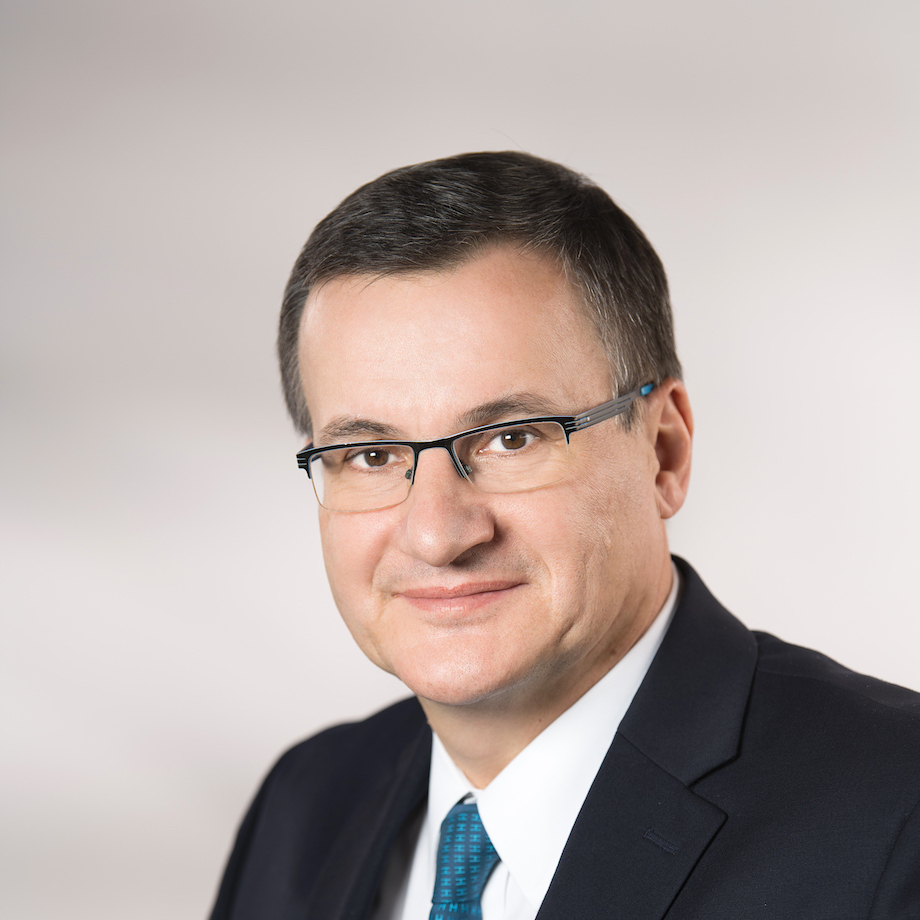
ESR Gold Medallist
Professor Boris Brkljačić was born in Zagreb, Croatia, in 1963. He is married, father of two children and grandfather of four children.
Professor Brkljačić graduated from the University of Zagreb School of Medicine in 1988 and did his board exam in Radiology at the University Hospital Merkur in 1994.
Currently, he is Professor of Radiology (tenured), Chair of the Radiology Department at the University of Zagreb School of Medicine, Chair of the Department of Diagnostic and Interventional Radiology at the University Hospital Dubrava and Vice-Rector of the University of Zagreb.
He is also past President of the European Society of Radiology, Chair of the ESR Eurosafe Imaging Initiative (July 2022 - present), Secretary General of the International Society of Radiology (2020-2024), Board Member of the International Society for Strategic Studies in Radiology (2023-2025) and Head of the Radiology Advisory Board of the Ministry of Health for the National Breast Cancer Screening Programme (2005 - present).
He was president of the European Alliance for Medical Radiation Protection Research EURAMED (2021-2023) and also served as Chairman of the Board of the European Society of Radiology (2020-2021), President of the European Society of Radiology (2019-2020) and President of the Croatian Society of Radiology (2008-2012).
Professor Brkljačić is an Honorary Member of the RSNA and twelve European radiology societies, International Associate Editor of Radiology since 2023 and Editor-in-chief of the Journal of Ultrasound since 2018.
Professor Brkljačić gave over 450 invited lectures at more than 320 international meetings and institutions on all continents.
His extensive list of publications and scientific projects includes: editor of the textbooks in radiology, author of two monographic textbooks in vascular ultrasound, 73 chapters in textbooks and books, more than 130 papers in peer-reviewed magazines, principal investigator at four finished projects, coordinator of two European Commission Tender projects, consortium member of one Horizon-2020 project and one EU4H project, Chair of the Advisory Board of the Horizon 2020 EURAMED rocc-n-roll project.
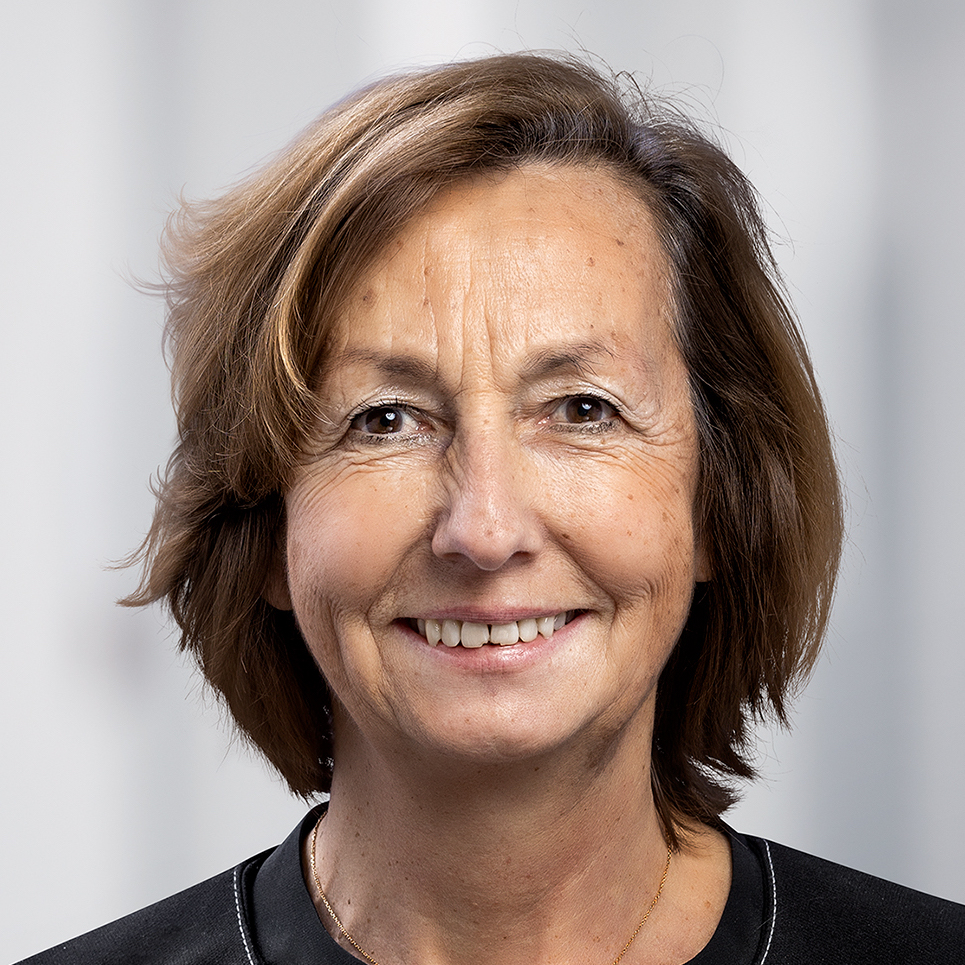
ESR Gold Medallist
Dr. Valérie Vilgrain is Chair of the Department of Radiology at the University Beaujon Hospital and Professor of Radiology at the University of Paris Cité, France. Her major research interests are diagnostic and interventional imaging of the liver, pancreas and bile ducts.
Dr. Vilgrain is a member of several international and national societies, such as ESR (European Society of Radiology), RSNA (Radiological Society of North America), ESGAR (European Society of Gastro Abdominal Radiology), EASL (European Association for the Study of Liver), SFR (French Radiological Society), and International Society for Strategic Studies in Radiology (IS3R). She was chairperson of the Education Programme Committee of the SFR annual meeting from 2000-2008 and has been Vice-Chairperson of the French Society from 2010 to 2014. She chaired the RSNA Regional Committee for Europe (2015-2018). She is a member of the ESGAR Executive Committee, and since March 2018, she is the Scientific Director of ESOR (European School of Radiology).
Dr. Vilgrain has published more than 500 peer-reviewed papers (H-Number> 80) and has been a principal investigator of several large multicentre clinical trials, including the SARAH trial. Since 2012 she has participated to many European guidelines: liver transplantation for hepatocellular carcinoma, management of patients with neuroendocrine liver metastases, management of benign liver tumours, management of hepatocellular carcinoma, consensus statement on liver MR imaging and clinical use of liver-specific contrast agents, pancreatic adenocarcinoma, and cystic liver lesions.
She has served on the Editorial Board of Radiology (Associate Editor 2007-2012, Consultant to the Editor 2012-2017), and she is currently on the Editorial Board of Abdominal Radiology. She is a reviewer for several radiological journals: Radiology, European Radiology, AJR, European Journal of Radiology, and clinical journals: Gut, Hepatology, Journal of Hepatology, Liver Transplantation, and European Journal of Cancer.
Since 2015, she has been PI or co-PI of several academic or academic/industry projects: HECAM (HEpatocellular CArcinoma Multi-technological), RIHDO (Radiomics and Integration of Heterogenous Data in Oncology), QUID-NASH (Quantitative imaging in Diabetes–NASH), AIDReAM (AI in medical imaging), and RHU OPERANDI (Optimisation and ImProved Efficacy of internal RAdiatioN therapy in Digestive cancers by Imagomics) with a total funding of 52,6 M€.
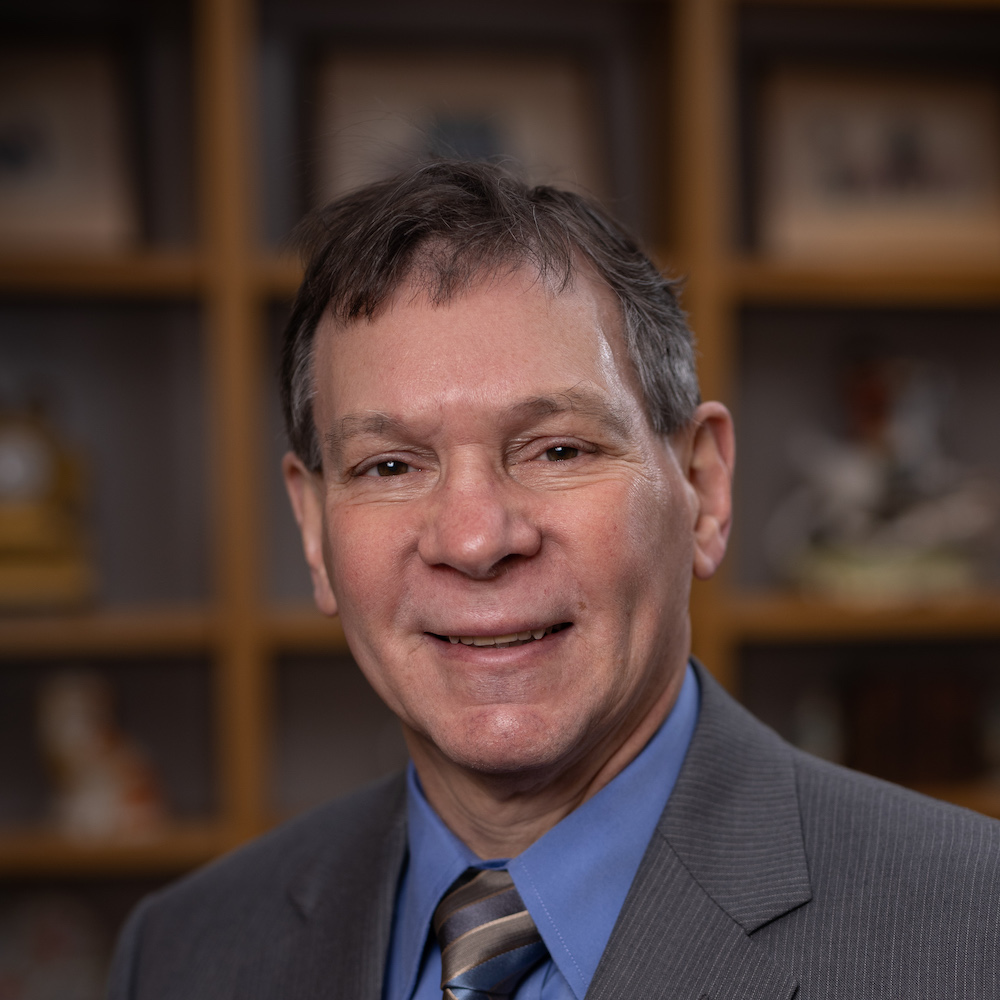
ESR Honorary Member
Matthew A. Mauro, MD, is president of the Radiological Society of North America (RSNA) Board of Directors.
Dr. Mauro is president of University of North Carolina (UNC) Faculty Physicians and senior physician executive of UNC Health Care System Revenue Cycle. He is the James H. Scatliff Distinguished Professor of Radiology, as well as a professor of surgery at the UNC School of Medicine in Chapel Hill. He has been a faculty member at UNC since 1982.
Dr. Mauro received his medical degree in 1977 from Cornell University Medical College in New York. He completed his residency training in 1980 at the UNC School of Medicine and was chief resident during his last year. Between 1980 and 1982, Dr. Mauro completed fellowships in diagnostic and vascular radiology at UNC and abdominal and interventional radiology at the Mallinckrodt Institute of Radiology at the Washington University School of Medicine in St. Louis.
As RSNA president, Dr. Mauro supports RSNA's mission by shepherding the Society through the evolving healthcare landscape and advancing the field of radiology through dissemination of high-quality research and education.
A prolific researcher, Dr. Mauro has published over 150 journal articles and numerous book chapters. He has co-authored five books. His textbook, Image-Guided Interventions, serves as a standard reference in the field. Dr. Mauro has given dozens of scientific research presentations nationally and internationally and has been an invited lecturer or visiting professor at over 200 institutions and meetings worldwide. He has served as principal or co-investigator on numerous funded grants, including several grants focused on diagnostic atherosclerosis imaging and treatment of complex pathology of the descending thoracic aorta.
A dedicated RSNA volunteer, Dr. Mauro served on the Scientific Program Committee beginning in 2005, and as chair from 2009 to 2013. He served on the Public Information Advisors Network from 2002 to 2011. Dr. Mauro is a regular faculty member for annual meeting educational courses and was the associate editor of Radiology from 2002 to 2007. He has served on the RSNA Research & Education (R&E) Foundation Public Relations Committee and the Corporate Giving Subcommittee, and as an R&E Foundation grant reviewer. He currently serves on the R&E Foundation's Board of Directors. Dr. Mauro joined the RSNA Board of Directors in 2015, serving as Liaison for Education.
Dr. Mauro has worked extensively with the Society of Interventional Radiology (SIR), where he was on the Board of Directors from 1996 to 2000, serving as president during his last year. With SIR, he served on the Executive Council from 1994 to 2000 and from 2002 to 2006. He was on the Scientific Programme Committee from 2000 to 2002, served on the Steering Committee for the World Conference on Interventional Oncology in 2005 and held many other positions between 1992 and 2006.
Dr. Mauro has served on a number of editorial boards, including Clinical Imaging, Applied Radiology, American Journal of Roentgenology and Seminars in Interventional Radiology, among others. He has been a manuscript reviewer for several journals, including RadioGraphics, Journal of Interventional Radiology, Cardiovascular and Interventional Radiology, Journal of Vascular Surgery and Pediatrics. Dr. Mauro has been a book reviewer for Gastrointestinal Radiology, Journal of Vascular and Interventional Radiology, Investigative Radiology and Academic Radiology.
Since 2020, Dr. Mauro has been the RSNA Representative to the Academy for Radiology & Biomedical Imaging Research Executive Committee. He was past president of the Southeastern Angiographic Society, where he served on the Board of Directors from 2012 to 2018. Dr. Mauro has served on the American Heart Association's Scientific Sessions Programme Committee, as well as the Executive Committee, and he served on the Board of Chancellors of the American College of Radiology from 2003 to 2009. At the American Board of Radiology (ABR), Dr. Mauro served on the Board of Governors from 2015 to 2018 and on the Executive Committee from 2013 to 2015. He was trustee from 2006 to 2015.
He was awarded the gold medal by SIR in 2014. The ABR has presented Dr. Mauro with both the Distinguished Service Award and the Lifetime Service Award.

ESR Honorary Member
Prof. Murakami graduated from Kobe University School of Medicine in 1986 and then completed his postgraduate training at the Osaka University Graduate School of Medicine in 1991.
From 1991-2006, he became a Fellow Assistant Professor and Associate Professor of Radiology at the Osaka University Graduate School of Medicine. He was the Visiting Assistant Professor of Radiology at the University of Pittsburgh Medical Center from 1994 to 1995. He was also Professor and Chairman of Radiology at the Kindai University Faculty of Medicine, a position he has had since 2006.
He is currently a Professor and Chairman of Radiology at the Kobe University Graduate School of Medicine, a position he has since 2018. Also, since April 2023, he is Dean of Kobe University Graduate School of Medicine.
He was a member of the Task Force on Computed Tomography for the 1999 ICRP, and he has also received a number of awards, including, e.g., twelve "Certificate of Merit Awards" and two "Cum Laude Awards" of the Radiological Society of North America.
He has published 380 English and 380 Japanese articles and is on the Review Board of 14 peer-reviewed journals. He has given more than 380 presentations in his area of expertise on numerous occasions to international audiences.
He is also a Vice President of the Japanese Radiological Society and a council member of several societies like the Japanese Society of Hepatology, the Japanese Society of Liver Cancer Study Group, the Asia-Pacific Primary Liver Cancer Expert Association and others.
His research interest is "Radiological diagnosis and Interventional Radiology of liver disease". He is interested in studies to improve the efficacy of focal treatment of HCC, for example, an image navigation system for radiofrequency ablation and transcatheter arterial chemoembolisation.
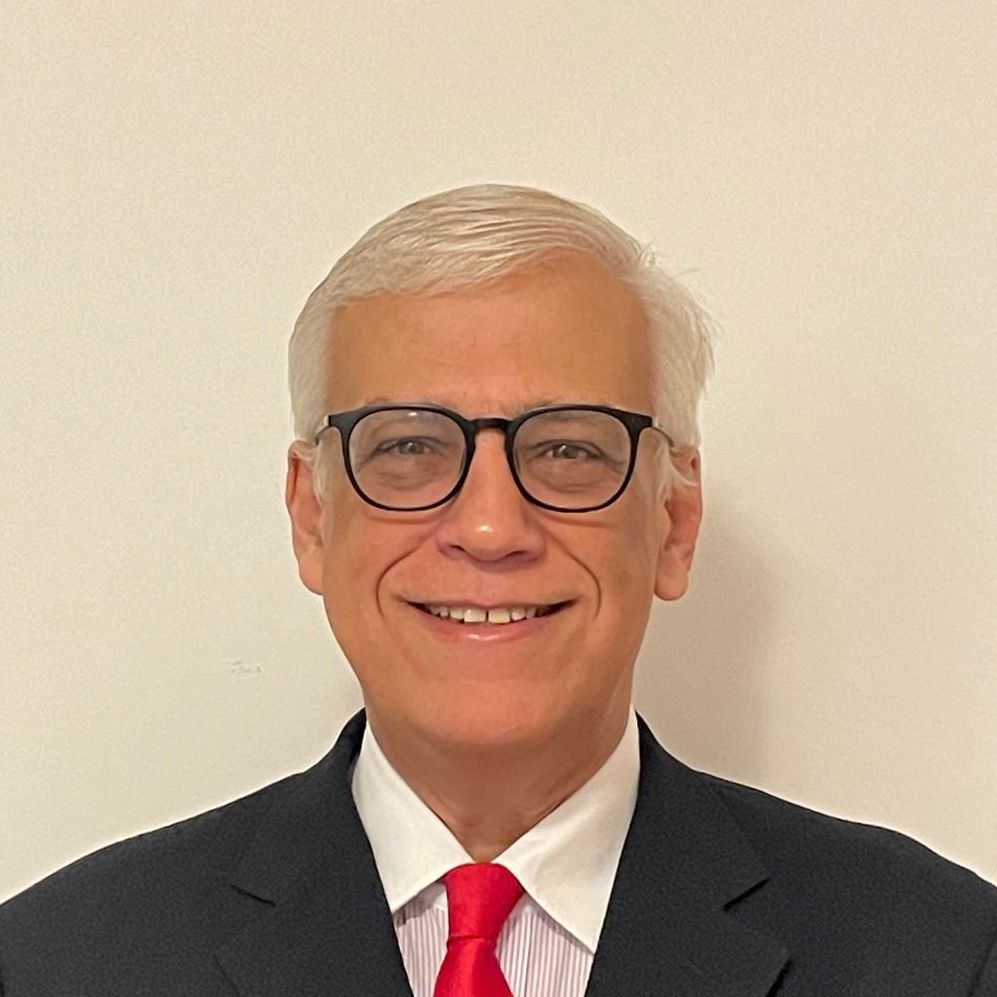
ESR Honorary Member
Professor Alair Augusto Sarmet Moreira Damas dos Santos graduated in Medicine from Universidade Federal Fluminense in 1985. He did his MSc in Medicine (Radiology) at the Federal University of Rio de Janeiro in 1992 and received a PhD in Medicine (Radiology) from the Federal University of Rio de Janeiro in 1997.
Currently, he is an Associate Professor and Head of the Department of Radiology, School of Medicine at Universidade Federal Fluminense (UFF) in Niterói, Brazil.
Professor dos Santos is a member of the Advisory Board of the Brazilian College of Radiology (CBR) and former President of the CBR (2019-2020). From 2003-2007 he served as a member of the Advisory Board and former President of the Brazilian Society of Radiology (current Society of Radiology of the State of Rio de Janeiro: SRAD-RJ).
He is the former Head of the Radiology Service of the Antônio Pedro University Hospital of the Fluminense Federal University (1996-2019) and former General Medical Coordinator of the Imaging Center of the Niterói Hospital Complex, DASA (Diagnostics of America) (2001-2023).
He is a full Professor of the Specialization Course in Radiology of the Instituto Superior de Ciências da Saúde Carlos Chagas at Rio de Janeiro, Brazil, President of the Irradiation Commission of Federal Fluminense University (CIR-UFF), President of the Radiological Protection Commission of the Brazilian College of Radiology (biennium 2019-2020), Member of this Commission in the biennium 2021-2022 and again President of this Commission in the biennium 2023-2024.
His research interest focuses on radiology and diagnostic imaging, with an emphasis on neuroradiology, emergency radiology and oncological Radiology. He also works in teleradiology, artificial intelligence, radiological protection, and radiology education.
Professor dos Santos has published 99 articles in scientific journals, 56 full papers in congresses and presented 305 scientific papers at various conferences. He participated in many national and international meetings and postgraduate course conclusion programmes and has been an active member of the selection boards for public examinations and organising committees. Supporting the youth, he also acts as a student advisor.
Professor dos Santos’ current research focuses on computed tomography of the chest in health professionals exposed to SARSCOV-2 (Covid-19), advances in diagnostic imaging methods, digital radiology and radiological protection, neuroradiology, and artificial intelligence.
His education projects involve: Elective radiology internship in the pandemic: innovation with online teaching, Digitized image archive of the radiology service of the Antônio Pedro University Hospital, Creation of the content grid of the radiology discipline, Optional course in radiology for the internship in medicine and academic league of radiology-UFF (LIRA-UFF).
Furthermore, Professor dos Santos is involved in the following projects in development: Artificial intelligence in radiology, Digital radiology: digitalisation of a radiology service, Implementation of a quality control and assurance programme in diagnostic radiology, National task group on radiation protection in clinical specialties, Project NRD (National Reference Level) Brazil.
He serves as a reviewer for Insights into Imaging and Brazilian Radiology.
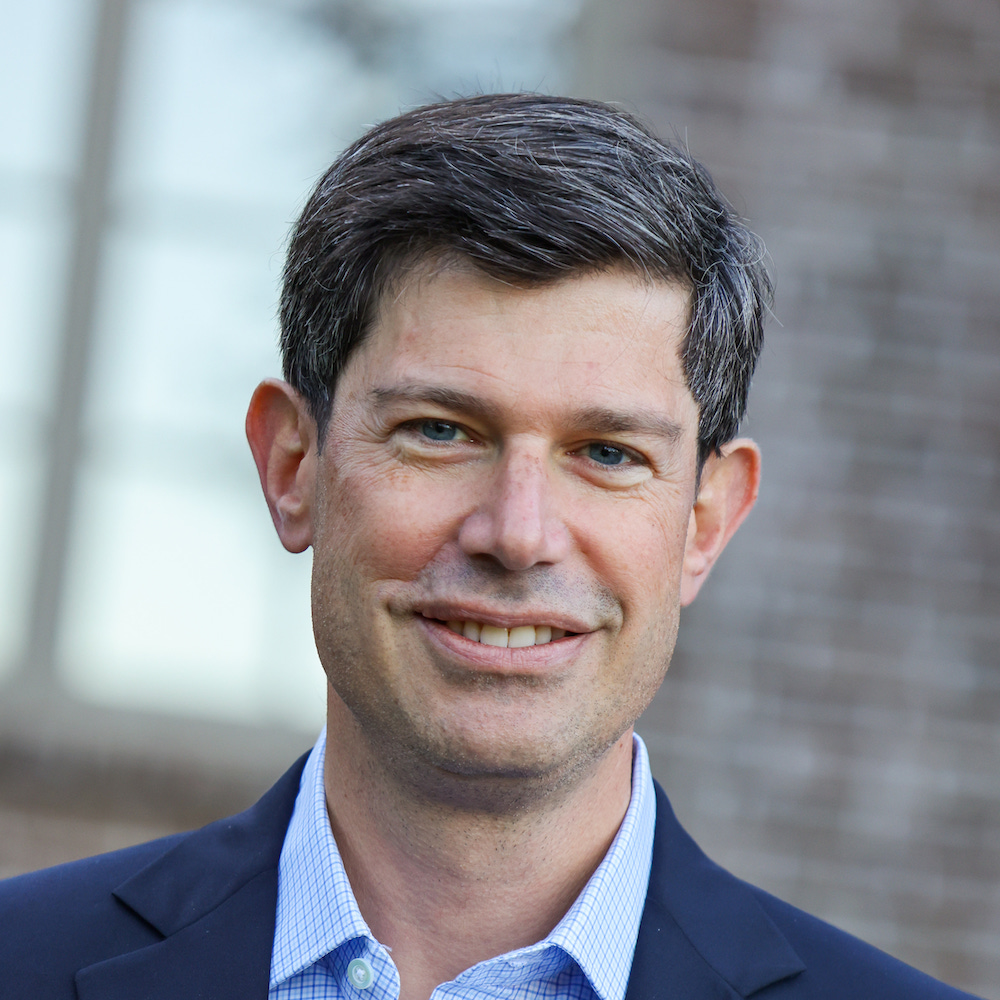
Plenary Speaker
Rick Abramson, MD, MHCDS, FACR, is global Chief Medical Officer for Annalise.ai, a health care artificial intelligence technology company providing advanced clinical decision support solutions for medical imaging. Dr. Abramson’s role spans multiple domains including strategic direction, clinical oversight, business development, product design and development, research management, and sales and marketing support.
Prior to his role at Annalise, Dr. Abramson was corporate Vice-President, Radiology Service Line, at HCA Healthcare, where he led enterprise strategic development for radiology, medical imaging, imaging informatics, and artificial intelligence across HCA’s network of 185 hospitals in the U.S. and the United Kingdom. While at HCA, Dr. Abramson developed and coordinated system-wide strategy for radiology professional services contracting, employment, and joint venture relationships; led standardization efforts for radiology performance metrics, operational workflows, and equipment purchasing; co-led a redesign effort for HCA’s enterprise imaging informatics architecture; and implemented a set of corporate strategy and governance models for imaging data monetization and artificial intelligence.
Prior to his arrival at HCA, Dr. Abramson was Associate Professor and Vice-Chair for Innovation in the Department of Radiology and Radiological Sciences at Vanderbilt University School of Medicine, and he is currently Adjoint Associate Professor of Biomedical Engineering in the Vanderbilt University School of Engineering.
He has authored over 80 peer-reviewed publications (Google Scholar: 3330 citations, h-index of 33) on quantitative imaging biomarkers, radiology economics, quality metrics, and foundational image processing techniques for artificial intelligence and machine learning in diagnostic medical imaging.
Dr. Abramson holds an A.B., magna cum laude, from Harvard College, an M.D. from Harvard Medical School, and a Master of Health Care Delivery Science with concentrations in health care strategy, finance, and management from The Tuck School of Business at Dartmouth College.
He completed his postgraduate training at Brigham and Women’s Hospital, the University of Pennsylvania, and Johns Hopkins Hospital. Earlier in his career, he served as Special Advisor to the Associate Director for Health and Personnel at the White House Office of Management and Budget (OMB), as an associate with McKinsey & Co., and as a senior manager with Avalere Health in Washington, D.C.
He later practiced international teleradiology with Nighthawk Radiology Services and co-founded Partners in the Imaging Enterprise, LLC, a radiology management services organization dedicated to aligning radiology practices with hospitals and health systems.
Dr. Abramson is an alumnus of the Association of University Radiologists-GE Radiology Research Academic Fellowship (GERRAF) in health services and comparative effectiveness research and is a fellow of the American College of Radiology (ACR).
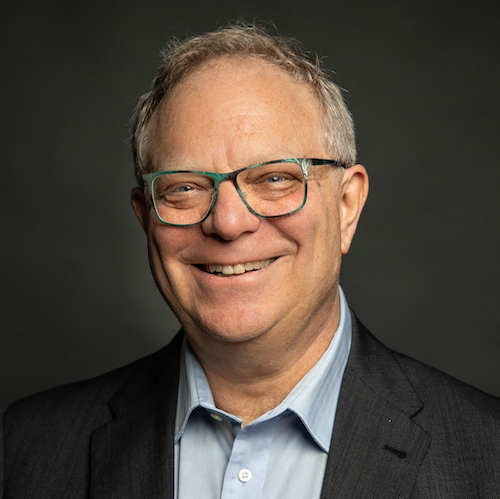
Plenary Speaker
Since 2020, Geoffrey D. Rubin, MD, MBA, FACR, FAHA, FSABI, FNASCI, has served as Professor and Chair of the Department of Medical Imaging at the University of Arizona and Service Chief of Medical Imaging at Banner University Medicine in Tucson, Arizona.
He is a past President of the Fleischner Society, the Society for Advanced Body Imaging, the North American Society for Cardiovascular Imagers, and currently President and Board Chair of the International Society for Computed Tomography, Treasurer of the Association for University Radiologists, Board Member of the Radiology Leadership Institute of the American College of Radiology, Executive Board Member of the International Society for Strategic Studies in Radiology, and Board Member of RAD-AID International. He was previously the George B. Geller Distinguished Professor and Chair of Radiology at the Duke University School of Medicine.
Prior to joining Duke University in 2010, he was Professor of radiology at Stanford University, where in the 1990s and early 2000s, he pioneered the development of CT angiography and three-dimensional visualisation techniques across the cardiovascular system. He also served as Associate Dean for Clinical Affairs at the Stanford School of Medicine, Associate Director of the Stanford Cardiovascular Institute, and Chief of Cardiovascular Imaging within the Stanford Department of Radiology.
In 2014, he earned an MBA from the Fuqua School of Business at Duke University, where he was recognised as a Fuqua Scholar and represented his class as their commencement speaker.
He is the author of over 300 published works and principal investigator for over $12M in research grants from the National Institutes of Health.
He currently serves as a principal investigator for a National Cancer Institute-funded research grant studying how artificial intelligence can streamline the interpretation of CT scans of the chest, abdomen, and pelvis. Other areas of focus include the contributions of perceptual variations to radiologist performance in volumetric image interpretation and effective leadership and management in radiology and healthcare. In support of the latter focus, he is an avid mentor for radiology leaders and has developed and taught several national leadership training programs for the Radiology Leadership Institute of the American College of Radiology, where he has served as a founding Board Member since 2012.
He is also the host of the widely acclaimed RLI podcast, "Taking the Lead", which profiles the personal journeys of radiology leaders. The more than 60 episodes released to date have been downloaded over 85,000 times.
He attained Bachelor of Science degrees with honours in chemistry and biology at the California Institute of Technology, a Medical Degree from the University of California at San Diego, and a radiology residency and fellowship at Stanford University. He co-founded Trivascular Inc and Informatics in Context and has served as an advisor and consultant to more than 20 medical technology companies.
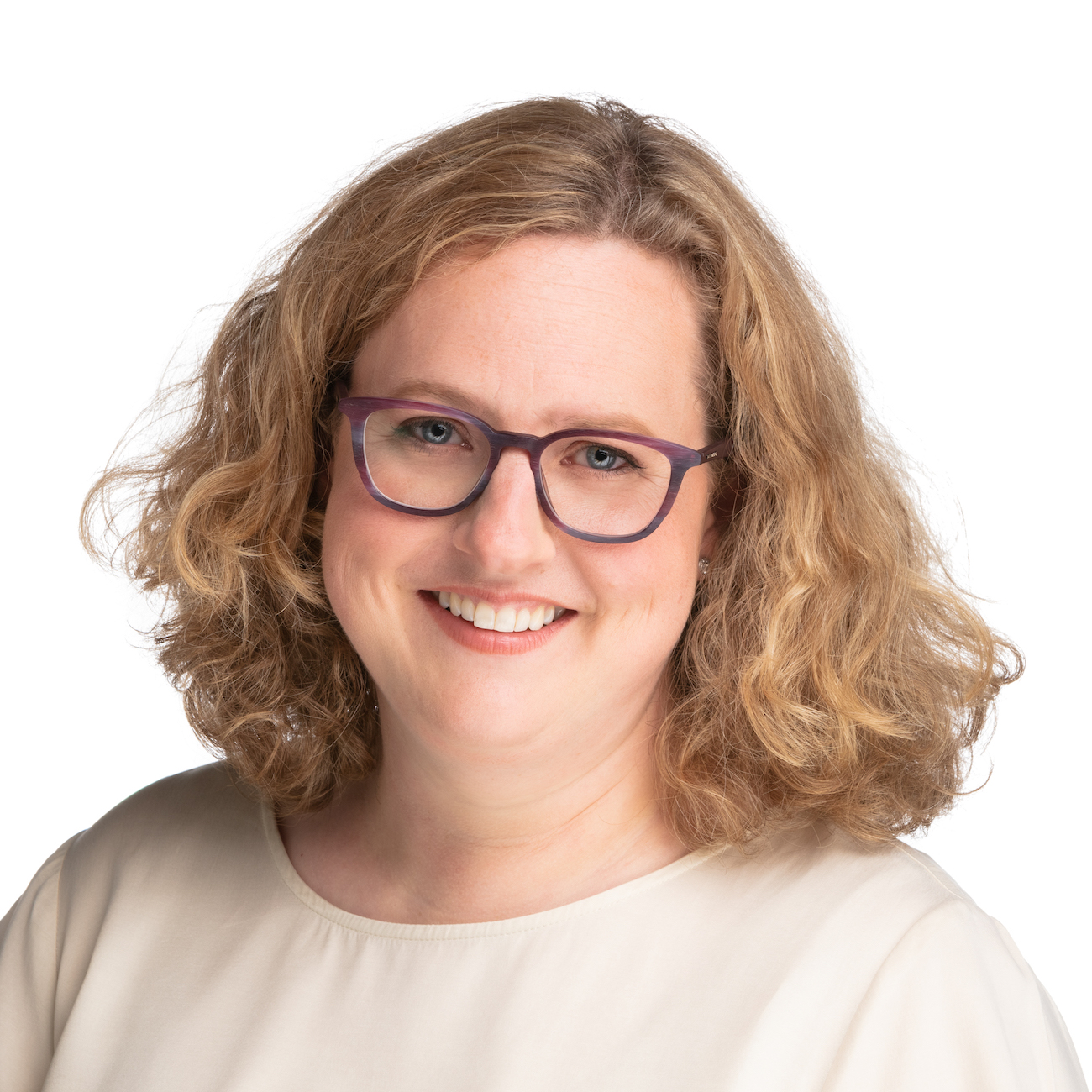
Plenary Speaker
Annemiek Snoeckx, MD, PhD, is an Associate Professor at the University of Antwerp and chairs the Department of Radiology at the Antwerp University Hospital in Belgium. She graduated as a medical doctor in 2003, is a board-certified radiologist since 2008 and has been working since then at the University Hospital of Antwerp. She obtained her PhD in 2019. She is the academic coordinator of the radiology residency programme at the University of Antwerp.
Her clinical and research interests are in the field of chest imaging, in particular, thoracic
oncology (in general), lung cancer, pulmonary nodules, lung cancer screening and
implementation of artificial intelligence.
She is an active member of numerous committees within the European Society of Radiology, European Society of Thoracic Imaging and European Respiratory Society. She is the team leader of the Chest Radiology Written Evaluation Committee for the European Diploma in Radiology (EDIR) and currently serves as ad interim chairperson of the ESR Education Committee.
Annemiek is passionate about education on thoracic oncology topics. She authored or co-authored more than 90 papers in peer-reviewed journals and has lectured at many national and international meetings and courses.
TIMELINE TO ECR 2025
- August 26 – October 10, 2024
Abstract submission open for
Oral presentations
Poster Presentations
Student Presentations - August 26 – December 15, 2024
Case-based Diagnosis Training (Interlude) submission open - August 26 – October 10, 2024
Application open for Support Programmes
Invest in the Youth
Shape your Skills - August 31, 2024
ESR Membership Application Deadline
for reduced ECR 2025 fees - September 2024
Online Registration Open - November 28, 2024
ESR Membership 2024 Final Application Deadline - February 26 – March 2, 2025
ECR 2025
- August 31, 2023: ESR Membership Application Deadline for reduced ECR 2024 fees
- September 01 – October 15, 2023: Abstract submission open for oral presentations, poster presentations & student presentations
- September 01 – October 15, 2023: Application open for support programmes “Invest in the Youth” & “Shape your Skills”
- September 01, 2023: Online Registration Open
- November 08, 2023: ECR 2024 Registration Opening Fee Deadline
- November 28, 2023: ESR Membership 2023 Final
Application Deadline - December 13, 2023: ECR 2024 Registration Early Fee Deadline
- December 20 – January 17, 2024: Late-breaking Abstract submission
- February 28 – March 3, 2024: ECR 2024
- August 31, 2023: ESR Membership Application Deadline for reduced ECR 2024 fees
- February 28 – March 3, 2024: ECR 2024
SEE WHAT’S WAITING FOR YOU
Wonders await – take a look at this year’s program on our connect Page →
LATEST ECR NEWS
Find older articles
in our archive here.
Must read
- March 2024
Blurring the lines between science fiction and reality, ECR 2024 offers vision for the future of radiology
THE WORLD SEES YOU AT ECR 2024
Showcase your products, interact with healthcare professionals and extend your network at the biggest radiological meeting in Europe.
DOWNLOAD THE ECR APP NOW!
Our App helps you make the most of your experience at ECR, helps you navigate and reminds you of highlights you simply cannot miss.
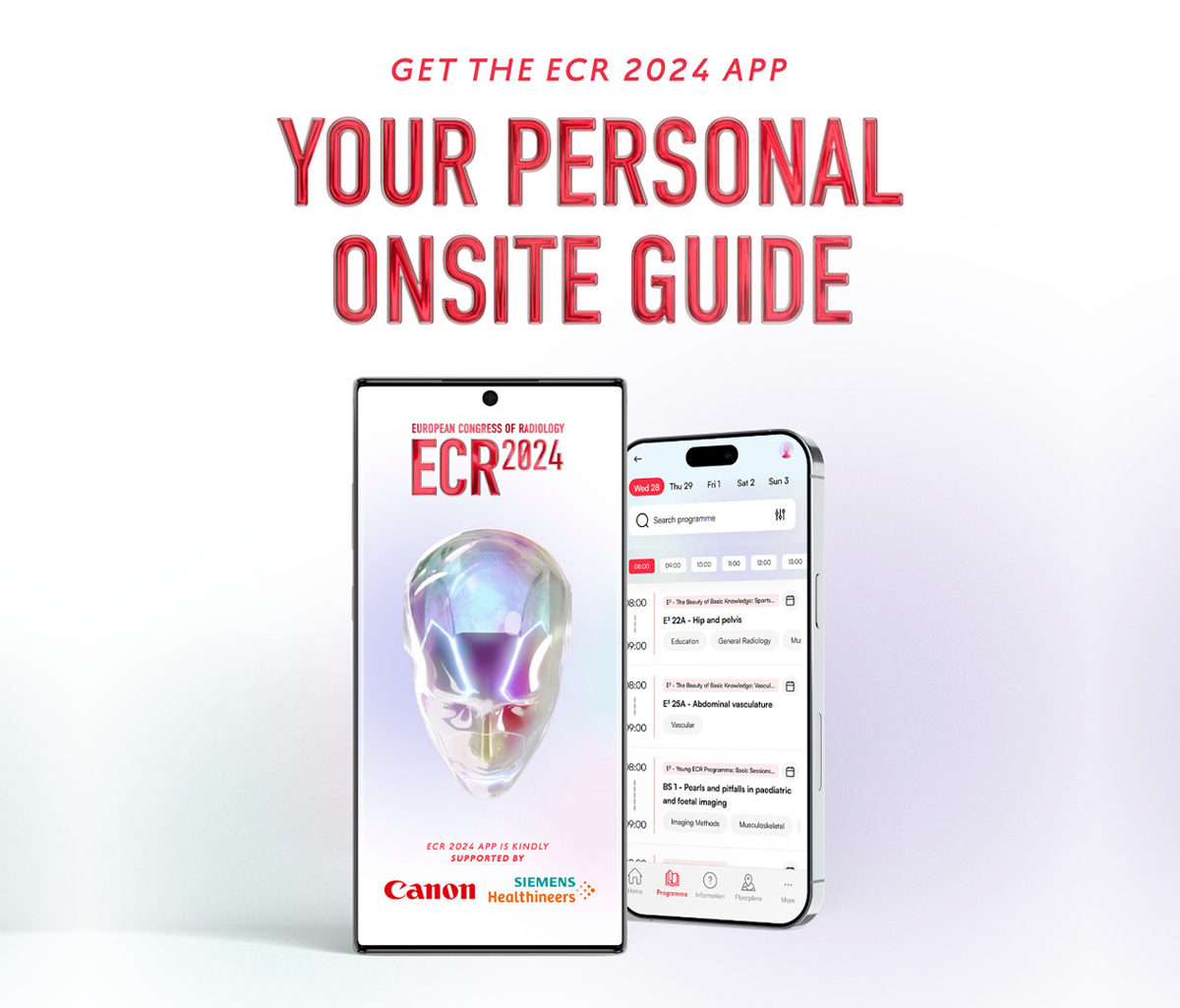
SEEING IS BELIEVING.
Watch our recap video of ECR 2023, providing you with a glimpse of the highlights and exciting moments from the event. This will give you a taste of what to expect in 2024 as we continue to build upon the success of this year’s congress.
